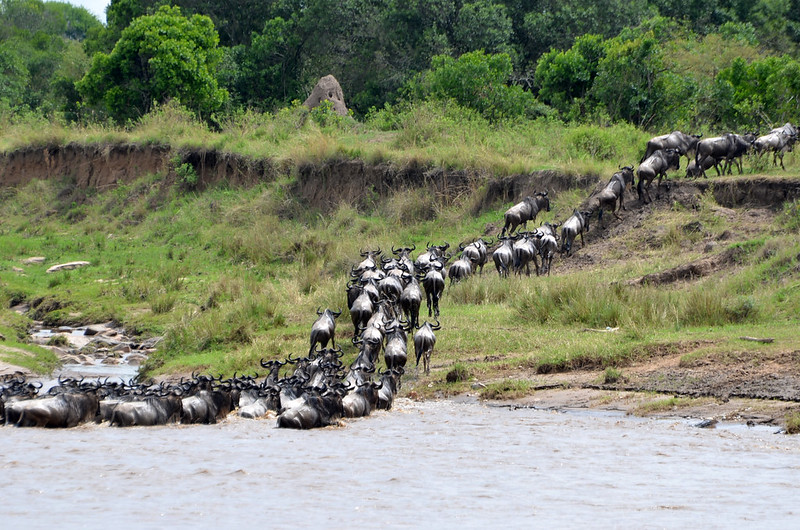A Comprehensive Tanzania Travel Guide (Updated 2025)
This website provides information about safari packages, the ideal time to visit Tanzania, and what to anticipate. A Tanzania travel guide provides travelers with comprehensive details on a safari in Tanzania. A thorough travel guide to Tanzania that includes suggestions and guidance on things to see and do, how to save money, where to stay, and expenses.
Tanzanian Safari Travel (What to Expect).
Tanzania is a safari insider with over 16 National Parks and numerous more conservancies that will make you nod your head in complete accord with the magnificence of creation. Come explore Tanzania and unleash your safari fantasies.
Each of Tanzania’s three safari circuits would elevate the country to the status of a premier wildlife destination on its own. Tanzanian safaris are a common item on most tourists’ lists of things to do while in Africa.
Numerous animals may be seen in the Northern Safari Circuit, along with a variety of other attractions like calderas, volcanoes, and many more, to name a few. One of Africa’s greatest traditional safaris may be found on the safari circuit, particularly if it coincides with the yearly wildebeest migration.
Serengeti National Park is the most well-known of all the Northern Circuit National Parks. Located in Tanzania’s Northern Circuit, the National Park is one of the most famous animal conservation sites in the planet. Planning a safari in Tanzania requires you to put the National Park, a world heritage site that covers an area of around 14,763 square kilometers, on your bucket list.
The Maasai term “Seringit,” which means “the endless plains,” is whence the National Park gets its name. The Great Wildebeest Migration, the world’s second-largest uninterrupted terrestrial animal migration, takes place in Serengeti National Park. Here, a safari is really amazing, with nothing left to appreciate.
All five of the African Big Five—lions, elephants, rhinos, leopards, and cape buffalo—can be found in the national park. The Serengeti’s enormous topography, changing weather patterns, and other migratory factors have caused the animals to wander about constantly. One of the greatest locations for seeing animals and experiencing the nature is the National Park.
Long and short grasslands, open plains in the south, acacia savanna in the center, hilly, more densely forested landscapes in the northern part, and vast woodland and black clay plains, dominated by the central mountain ranges in the western corridor, are all features of Serengeti National Park’s terrain and vegetation.
Numerous rivers flow through the park, including the Mara river in the north, the Grumeti river in the western corridor, and the Seronera river in the center, which all provide water to the animals during dry seasons. The vast Serengeti plains are peppered with rocky outcrops known as “kopjes.” During your safari, you will be constantly amazed by the changing scenery.
 In addition to the park’s many animal species, there is a lot of birds to be seen here. Amazingly, the park is home to over 500 different kinds of birds. A wide variety of smaller birds may be found, including guinea fowls, ostriches, secretary birds, kori bustards, hornbills, and various eagles and vultures.
In addition to the park’s many animal species, there is a lot of birds to be seen here. Amazingly, the park is home to over 500 different kinds of birds. A wide variety of smaller birds may be found, including guinea fowls, ostriches, secretary birds, kori bustards, hornbills, and various eagles and vultures.Travel Advice for Tanzania: Be Aware Before You Go
One of the most important things to focus on while organizing a Tanzanian safari is the Great Wildebeest Migration.
The Great Migration is one of the seven natural wonders of Africa and one of the biggest migrations of terrestrial mammals. The Serengeti National Park’s great migration is the second-largest terrestrial animal migration in the world.
The Great Migration is a massive yearly migration of over two million animal grazers, including zebras and wildebeest, that passes through the Masai Mara and the Serengeti. It is an event that will really astound you.
The existence of grass for grazing is the only element contributing to the Great Wildebeest Migration in the area. As a result, this affects the way animals travel in a circle, moving toward locations that are greener and have more pastures for grazing. However, since the animals are vulnerable to predators like lions, cheetahs, and crocodiles who hunt them down during their migration, the lengthy trips of more than a hundred kilometers are dangerous.
